|
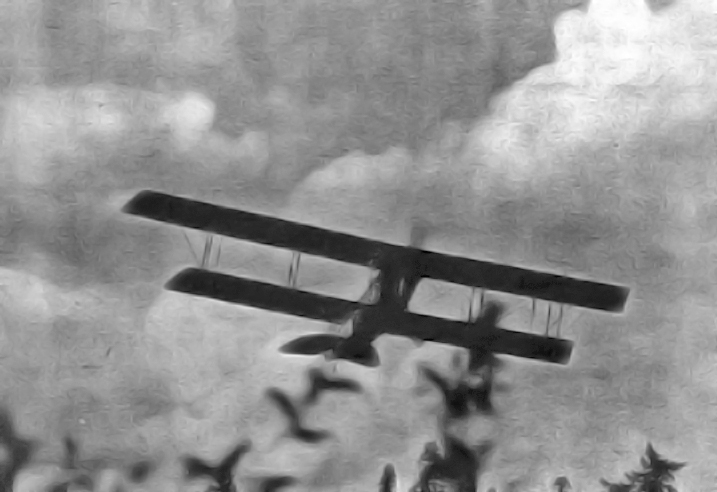
Curtiss JN-4 on a barnstorming tour |
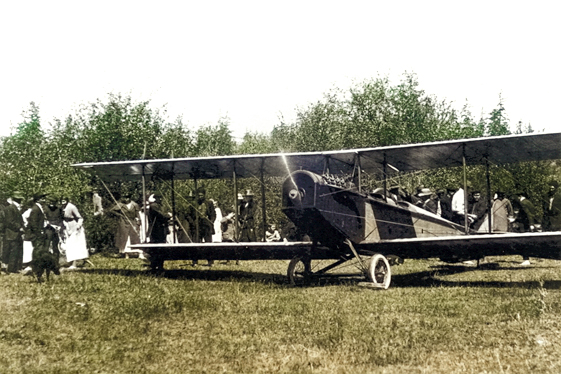 |
In June 1920, a
Curtiss JN-4 on a barnstorming tour of Vancouver
Island was the first airplane to land in the
Alberni Valley. Lt. Harry Brown and Norman
Goddard landed in a field where the Catalyst
pulp mill stands today. They were the first and
last land based aircraft to visit the area for
nearly three decades�in the coming years,
however, there would be much seaplane traffic
around Port Alberni.
.
|
|
Return to
map
1921 saw the arrival in the
harbour of an RCAF Curtiss HS-2L from Jericho Beach,
assigned to assessing storm damage in area forests. This
was the first of a number of visits by RCAF aircraft over
the following years flying in support of Fisheries, Forestry
and Customs enforcement activities. |
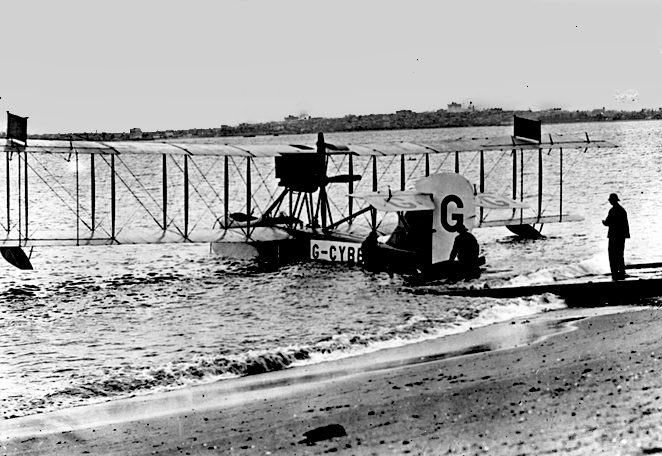
. |
|
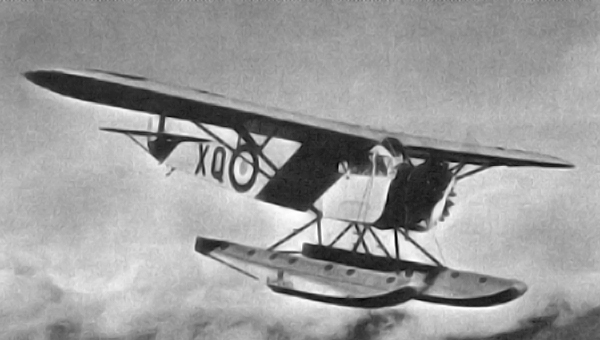
.. |
In the early 1930�s, RCAF
Jericho Beach established a detachment at Sproat Lake to
support aerial mapping surveys of Vancouver Island using
Vickers Vedette and Fairchild FC-2W aircraft like the one
shown here.
|
An RCAF Vickers Vancouver
was dispatched to Barkley Sound in 1931 to search for a
schooner suspected of landing illegal immigrants on the
coast.
.
Back to top of
page
Return to
map |
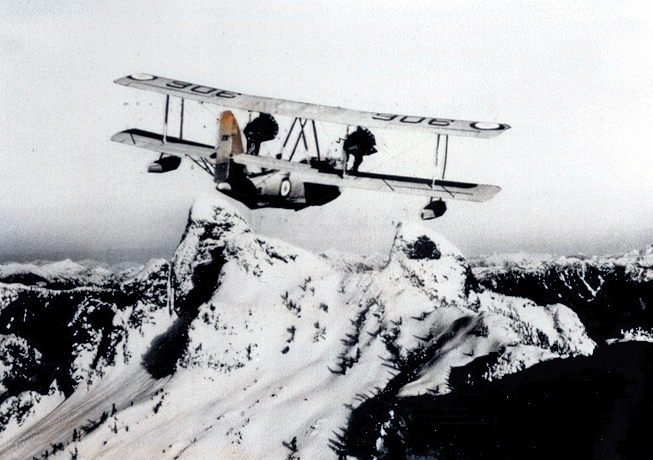
. |
|
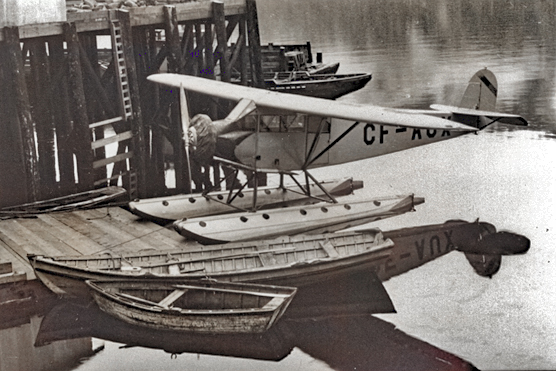
. |
The 1936 gold rush at Zeballos
put Alberni on the route for regular flights between
Vancouver and the gold rush town. This Ginger Coote Airways
Fairchild 51A flew a regular scheduled flight between
Zeballos and Port Alberni until it was lost coming from
Zeballos in May of 1938, killing the pilot and three
passengers. It was only found ten months later, fifteen
miles west of the Alberni Canal.
In 1939 the first airmail
service to Port Alberni and Zeballos was established by
Canadian Airways.
Return to
map |
|
With war imminent, the first
RCAF detachment of No. 6 (BR) Bomber Reconnaissance Squadron
was stationed at Ucluelet in 1939 and succeeded in 1940 by
No. 4 (BR) Squadron. Their aircraft�like the No. 4 Squadron
Stranraer shown here�and those of subsequent units stationed
at Ucluelet were frequent visitors to Port Alberni.
The local paper reported on July
29, 1943 that the city council had authorized the search for
a possible (land) airport site and intended to seek
assistance from the Department of National Defence.
Although the Department of Transport dispatched an engineer
to review the proposal, no further work was undertaken
before the end of the war. |
.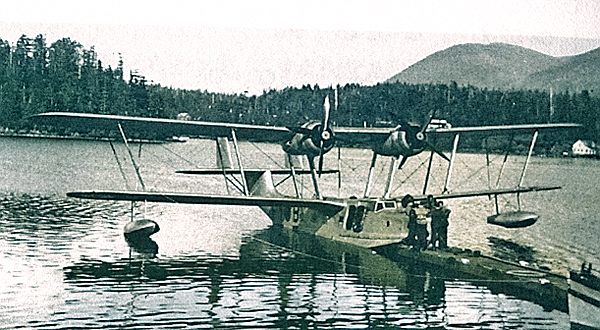
. |
|
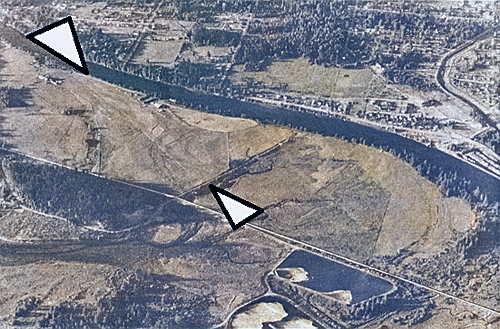
. |
In the years following the
end of the war, pressure continued for construction of
an airfield as well as an adequate seaplane dock to
serve the growing community. By May 1947 a farmer, Bob
Christie, began to develop part of his land across the
Somass River from the town site. By 1947 the Port
Alberni Flying Club had formed and began to fly from the
2500� grass runway, identified by the arrows in this
early aerial photo.
|
Also by 1947, Port Alberni
Airways was offering air charters and flight training,
using a mix of land-based aircraft and floatplanes based
on nearby Sproat Lake. The Christie farm field
(referred to locally as Somass field) remained
relatively undeveloped; the Canada Air Pilot
dated April 19, 1956 notes the runway is �soft during
periods of rain� and not licensed for more than a 22 �
degree crosswind. Christie Field was reported as still
operating in a 1985 article in the Alberni Valley
News.
|
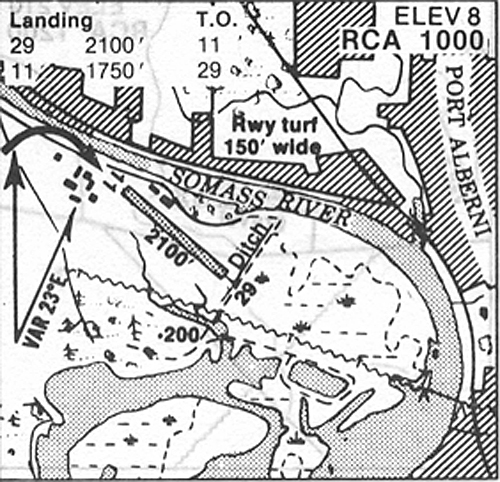
. |
|
.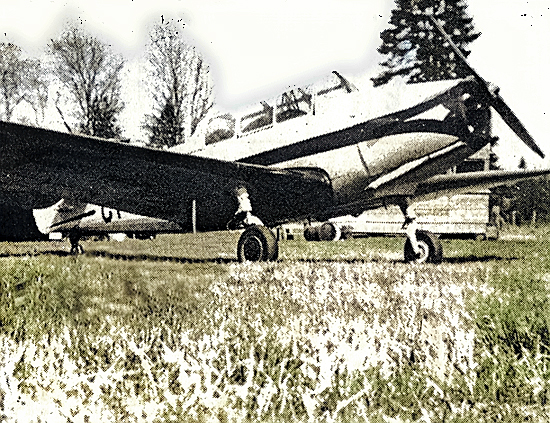 |
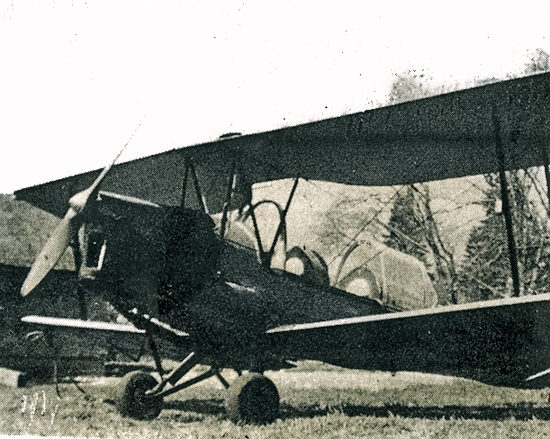 |
Among the
private aircraft that flew from Somass
Field were these ex-RCAF trainers, now
in civilian livery: a Fairchild Cornell,
and a deHavilland Tiger Moth.
|
Commercial aircraft also
continued to use Somass Field, despite the limited
facilities and short runway. This Queen Charlotte
Airlines Anson overshot the field in the early 1950�s,
incurring some damage.
The field was closed to
aviation in the late 1990�s by the then owner, MacMillan
Bloedel.
|
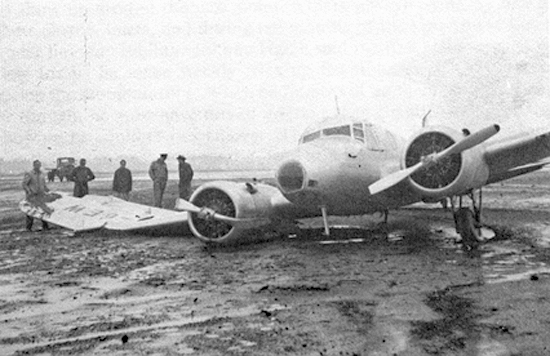
. |
In the face of greatly
increasing demand for aviation services and limited
opportunity for expansion of the Somass Field, the
Alberni Valley Regional Airport (CBS8) was opened in
September 1993 with a 3952 foot paved runway.
Located about 11 km northwest of the city, it is
owned and operated by the Regional District of
Alberni-Clayoquot.
CBS8
now features a 5000� paved runway and significant
facilities for some 15 aviation tenants that include
the headquarters of Coulson Aircrane, a heli-logging
company, and the base for a BC provincial forest
fire suppression crew. It also hosts the Alberni
Valley Flying Club and the Vancouver Island
Back to top of
page
Return to
map |
Note: Photos
courtesy Chris Weicht except for final aerial view courtesy
Google Maps
 �
British Columbia Aviation Museum Updated:
2023-01-16 �
British Columbia Aviation Museum Updated:
2023-01-16
|